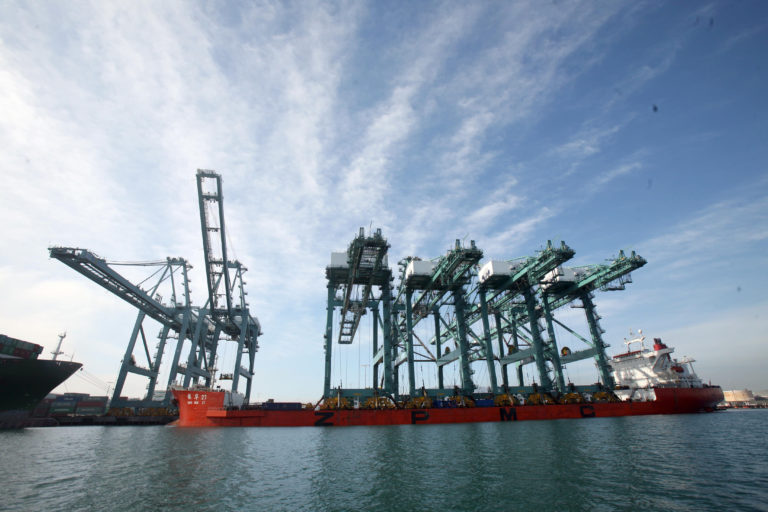
A local labor and civil rights group is asking the Los Angeles County Metropolitan Transportation Authority to prove that a $500 million contract it signed with a Canadian manufacturing firm is in fact creating jobs in the region and elsewhere.
Jobs to Move America, an L.A.-based coalition that unites 30 labor and civil rights groups, demanded in court documents filed May 31 that the agency release details of the deal it signed with heavy-duty bus manufacturer New Flyer Industries of Winnipeg, Manitoba.
As part of the agreement approved in 2013, New Flyer, which has factories in Ontario and St. Cloud, Minn., promised to produce a fleet of 550 clean-fuel buses, generating 150 new jobs in Los Angeles and 50 in Minnesota.
However, when the nonprofit requested a copy of the contract between Metro and the Canadian bus maker to see how many jobs were created and whether commitments for domestically produced buses were fulfilled, it received a heavily redacted document from the agency.
“We got pages and pages that were completely blacked out,” said Madeline Jenis, executive director of JMA. “This makes the public information request a joke. This is not going to disclose any information.”
When Metro finally agreed to release unredacted documents, New Flyer asked a Los Angeles Superior Court judge on May 20 to prevent the contract’s release, arguing it is not part of the public record.
JMA has since asked the court to release the documents, including the contract, quarterly and job progress reports, and an employment plan.
“We’re representing the public and taxpayers,” Jenis said. “We have the right to know what they spend the money for.”
Both New Flyer and Metro declined to comment.
Last year, the employment plan, developed by both parties, was approved by U.S. Department of Transportation Secretary Anthony Foxx. The $500 million contract was part of $305 billion in federal money allocated for transit spending as part of the 2015 Fixing America’s Surface Transportation Act.
Strike Ends
A group of truck drivers at the ports of Los Angeles and Long Beach returned to work last week after a six-day strike.
Truckers said they were misclassified as independent contractors by several trucking companies, including Pacific 9 Transportation, XPO Logistics Inc., and K&R Transportation.
Workers who haul containers on and off the docks for retail customers, including General Electric, Michael Kors, and Amazon.com Inc., also joined the strike, blocking the road and shutting down warehouses.
The strike started on May 31 and continued until June 8 with warehouse workers and truck drivers demanding fair hiring practices. Picket lines quickly spread to marine terminals, delaying traffic and creating long lines of trucks. The strike eventually reached the U.S.-Mexico border, where truckers gathered at XPO’s yard.
It was the fourth strike in two years in which workers demanded workplace protections such as a minimum wage, overtime pay, and the right to form a union. Port drivers have filed 802 worker misclassification claims with the Labor Commissioner’s Office since 2011.
Shipping terminals remained open during the strike.
Carbon Conscious
The Port of Los Angeles has also been under pressure to reduce carbon emissions. In response, it is equipping one of its terminals with a zero-emissions system.
Construction of the project will begin next month and be powered by solar panels and other renewable energy sources.
Funded by a $14.5 million grant from the California Air Resources Board for reducing greenhouse emissions, the project will purchase zero-emission cranes, retrofitted electric cars, and other cargo-moving equipment such as yard tractors, forklifts, and drayage trucks.
The project comes amid tough times for the port, which heavily invests in systems to reduce port-related emissions at the adjacent communities in Wilmington and Long Beach. The plan is expected to cut down more than 3,200 tons a year of carbon emissions, an equivalent of taking 14,000 cars off the road.
As part of the project, the 40-acre Pasha terminal will install a 2.6 megawatt-hour battery storage system, a one megawatt solar rooftop, a solar-powered microgrid, and an energy management system.
“We’re going to be the proving ground to change the paradigm of how large industrial facilities can run on clean energy,” said Jeffrey Burgin, senior vice president of Pasha Stevedoring and Terminals, in a statement.
The project carries a hefty price tag of $26.6 million, with funding coming from the state’s cap-and-trade auctions and grants to ax carbon emissions. Pasha has contributed $11.4 million in cash.
Staff reporter Olga Grigoryants can be reached at [email protected] or (323) 556-8326.
